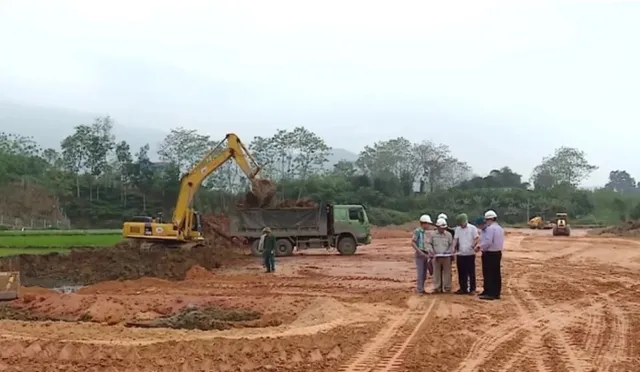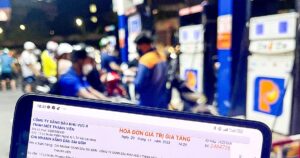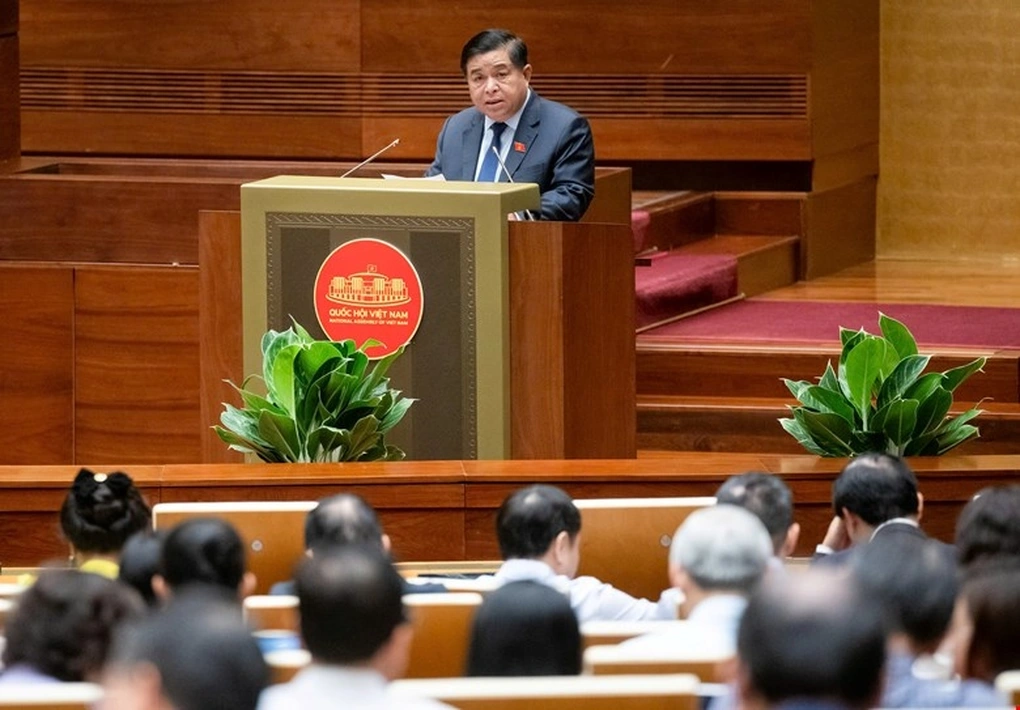Simplify administrative procedures, promote decentralization and delegation of power, promptly remove difficulties, and create favorable conditions to attract businesses to invest in many fields.
On the morning of October 30, the National Assembly listened to the presentation and the verification report, then discussed in groups the draft law amending and supplementing a number of articles of the Law on Planning, the Law on Investment, the Law on Investment under the public-private partnership model and the Law on Bidding, also known as the draft of 1 law amending 4 laws.
The general spirit of this bill, which is highly appreciated by many delegates, is the simplification of administrative procedures , promoting decentralization and maximum delegation of power to promptly remove urgent institutional difficulties and obstacles, creating favorable conditions to attract businesses to invest in many fields.
To invest in building an industrial park, the investor must complete a series of procedures on environmental impact assessment , construction procedures, and fire prevention and fighting . But when it comes to secondary investors building factories inside, they have to go through another round to redo all these procedures. Statistics show that on average, investors spend up to 260 days, or nearly 9 months, to complete the related procedures. Or for a PPP project to be approved, there must be 2 environmental impact assessment reports, one separate and one included in the feasibility study.
Delegate Nguyen Thanh Trung, National Assembly Delegation of Yen Bai province, commented: “I propose that it is necessary to study and amend in the direction that the environmental impact assessment report and the report proposing the issuance of an environmental license or a license according to the provisions of the law on environmental protection are only one of the accompanying documents, not included in the feasibility study report of the PPP project.”
In addition to cutting investment procedures, the bill also proposes to continue applying the BT build-transfer contract type to attract infrastructure investment capital, when this form was originally supposed to stop from the beginning of 2021, when the PPP Law took effect.
Mr. Nguyen Nhu So, National Assembly Delegate of Bac Ninh province said: “Instead of binding the right to exploit the counterpart project and the BT progress, the State can establish commitments on the inspection and evaluation mechanism to ensure that BT projects are implemented on schedule.”
Eliminating the mindset of banning if you can’t manage, the mindset of asking for and giving, and the mindset of holding on in some current regulations, the Minister of Planning and Investment said that the construction of this law is not only for management as before, but more importantly, to create, promote creativity and open up new development space.
Mr. Nguyen Chi Dung – Minister of Planning and Investment said: “Investment is like the palm of your hand, the water will flow to the area we create. If we cannot create this area, investors will not come to us, we will lose opportunities”.
The promotion of decentralization to enforcement units and the shift from pre-inspection to post-inspection are also included to the maximum in this bill.
Flexibility in capital allocation promotes infrastructure investment projects

In the above notes at the discussion groups on the morning of October 30, the proposal to continue implementing the BT contract type, meaning that the investor will build the infrastructure project and then transfer it to the competent authority for management and exploitation, in return the investor will be given land for business has received much attention.
In addition, another provision in the PPP law on the maximum State capital participation rate of 50% of the total project investment, proposed to be increased to 70%, is also expected to create attractiveness for investors, especially projects facing many difficulties in construction implementation. The story is recorded at the expressway project connecting the two provinces of Lang Son and Cao Bang.
Just over 1 month after the National Assembly issued a Resolution allowing a pilot project to increase the State capital contribution ratio to 70%, the Dong Dang – Tra Linh expressway was started, after nearly 4 years of failing to arrange capital.
“Increasing capital to 70% is very important, helping to attract investors interested in implementing the project. Second, credit institutions will see that the project is attractive enough and financially safe before lending,” said Mr. Nguyen Quang Vinh – General Director of Deo Ca Group.
Mr. Hoang Van Thach – Vice Chairman of Cao Bang Provincial People’s Committee said: “It will speed up the project’s progress and reduce difficulties for the province as well as the project.”
The proposal to adjust the participation ratio of State and private capital from 50/50 to 70/30 in the draft law amending 4 laws is considered flexible thinking. At that time, the amount of capital that investors spend will be less, making it easier for them to allocate capital, especially for projects in difficult areas.
Mr. Tran Quoc Phuong – Deputy Minister of Planning and Investment said: “The proportion of state capital participating in the project for general and auxiliary infrastructure work does not exceed 50%. However, in some special cases such as high land clearance capital , need to invest in new technology, the proportion of state capital can be up to 70%”.
In more than 3 years of implementing the Law on Investment under the form of public-private partnership (PPP), there are 31 new projects being implemented and 11 projects being prepared for investment under this model, with a total investment of about 380,000 billion VND.
With a new mindset in law-making, the draft laws are determined to be framework laws, with principles, and any changes and developments in practice will be assigned to the Government and implementing units to ensure higher efficiency. It is expected that the draft law amending 4 laws will be considered and approved by the National Assembly in a shortened process in 1 session.
















